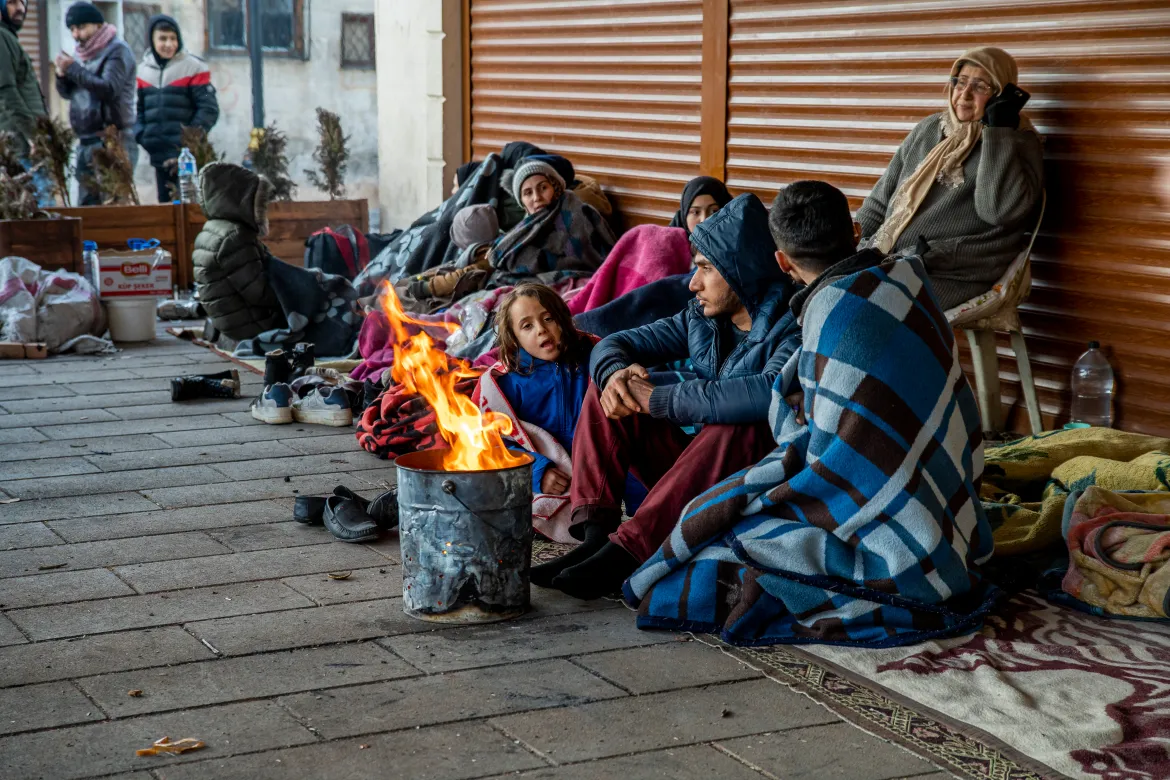This article discusses how natural disasters impact human lives, and may be triggering for some readers.

“The humanitarian crises resulting from these catastrophic earthquakes have led to a worsening of the human rights situation in both Syria and Türkiye by exacerbating pre-existing vulnerabilities.”
– Nils Muižnieks, Amnesty International’s Europe Director
Need for Human Rights Response
The month of February has seen several high magnitude earthquakes strike the Türkiye-Syria border region, killing more than 47,000 people in the two countries.
Leaving hundreds of thousands without homes, food, portable water, food, and healthcare, the earthquakes have exacerbated pre-existing vulnerabilities and have caused a rapidly worsening human rights situation in the region.
As the world responds to the crisis and rushes to lend support to those directly impacted by the earthquakes, human rights protections must be at the forefront of emergency response efforts. Humanitarian aid has been slow in reaching the affected regions, with support in Syria delayed by political considerations and logistical barriers. While Türkiye has invoked a state of emergency in the affected provinces, the country’s humanitarian relief efforts have also been slowed by political constraints.

Rather than halting human rights as a priority during times of crisis, human rights must be prioritized. International protection must be provided to refugees and asylum seekers and rights of migrants need to be essential in government commitments in disaster emergencies.
Protecting economic, social, and cultural rights to ensure access to housing, adequate food and water, and healthcare must also be a primary consideration. As described in a recent interview by Sean Michael Kivlehan, Assistant Professor in the Department of Global Health and Population at Harvard T.H. Chan School of Public Health:
“The health system—which was fragmented and inadequate before the earthquake—is going to be significantly affected. Many health care facilities sustained structural damage. There’s also concern around the workforce. You have the immediate interruption of work, disruption of education, and further worsening of “brain drain” as people relocate.”
Leveraging a human rights approach to disaster management will result in the fair and effective provision of humanitarian assistance and ensure governments are compliant with international human rights standards.
Student Action
Ways to help during the Türkiye-Syria crisis:
Donate to global humanitarian relief agencies helping people affected by disasters like the Türkiye-Syria earthquakes.
If you can’t donate at this time, you can still help by raising awareness of the international issue with friends, family, and your social media networks.
Many local organizations are coordinating earthquake relief efforts. Look for volunteer opportunities to get involved.
Subscribe to the SFHRA newsletter to hear future updates on global human rights issues!
